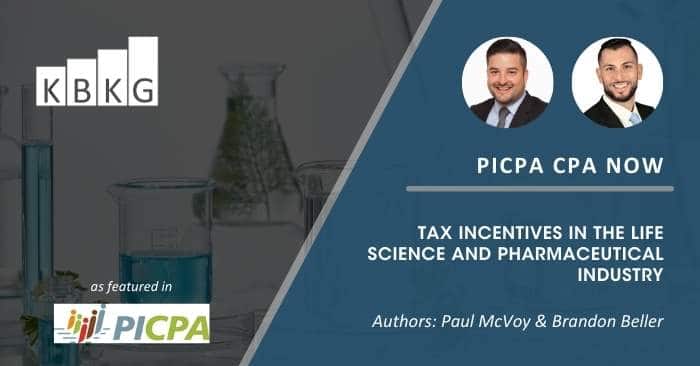As the world raced to create treatments for the worldwide coronavirus pandemic, a spotlight was on the domestic life sciences and pharmaceutical industry like never before. Companies across the industry leveraged artificial intelligence, data analytics, and novel applications of historical medicines, among other ideas to combat the virus. The demand for speed was an additional burden undertaken by an industry that generally faces an exacting regulatory environment and skyrocketing discovery costs. To help offset the cost of development and promote innovation, the U.S. government offers incentives that include the Credit for Increasing Research Activities (R&D credit) and Orphan Drug tax credits.
Recent legislative changes have allowed companies large and small to take advantage of the Section 41 R&D credit. The R&D credit is a valuable incentive available to companies investing in the domestic development of new or improved products, processes, or software. The R&D credit is a federal and state tax benefit ranging from 6% to 13% of every incremental development dollar spent. This tax incentive is a dollar-for-dollar reduction in income tax liability. Eligible qualified small businesses may use the credit to offset the employer portion of payroll taxes.
To spur investment for the treatment of rare diseases impacting a small population of individuals, the United States passed the Orphan Drug Act. An article within this legislation promulgated a tax credit for qualified clinical trial costs related to orphan drugs. To be eligible for this credit, a drug must receive an “Orphan” designation by the U.S. Food & Drug Administration. The Orphan Drug Credit is equal to 25% (50% prior to 2018) of the qualified clinical trial costs incurred by the company. Generally, the creditable costs must occur within the United States to be eligible for the credit.
Domestic companies within the life sciences and pharmaceutical industry incur significant costs in the development of new treatments. The government offers various incentives to offset the heavy cost of innovation, including the R&D and Orphan Drug credits. With the commencement of the new year, Companies should review their activities to determine whether they can take advantage of these valuable tax incentives.
Hear more from McVoy at PICPA’s Life Sciences and Pharmaceutical Conference on Feb. 9, 2021. Register today to ensure your spot.
About the Author
 Paul McVoy – Principal
Paul McVoy – Principal
New York
Paul McVoy is a Principal for KBKG’s R&D Tax Credit Consulting practice, overseeing the practice form our New York office. In this role, Paul devotes his time to consulting companies in maximizing their R&D tax credit claims. Prior to joining KBKG, Paul was a manager at a Big Four accounting firm out of the Philadelphia, San Diego, and Los Angeles offices. » Full Bio


